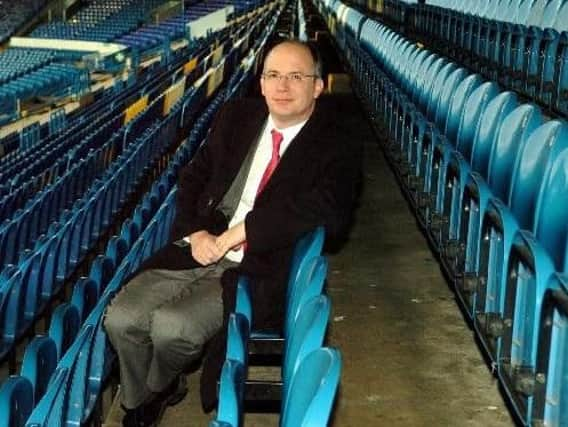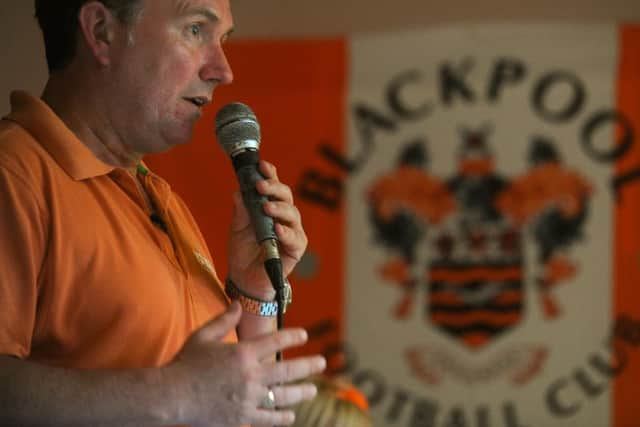EFL issues long-overdue response to question posed at Blackpool fans' meeting


Tim Fielding, on behalf of Blackpool Supporters’ Trust, quizzed Harvey about the EFL’s Owners’ and Directors’ Test at the meeting held in Blackpool on March 20.
He argued that, had the EFL interpreted its own rules correctly, then Owen Oyston would not have been permitted to run Blackpool Football Club given his conviction for rape.


Advertisement
Hide AdAdvertisement
Hide AdThe EFL’s position is that Oyston is not banned as his conviction, which came in May of 1996 and saw him imprisoned for six years, came before their new rules were introduced in 2004.
But Mr Fielding argued the EFL’s rules “clearly infer” convictions that pre-date its rules do in fact apply.
Harvey, responding on the night, admitted he did not know the answer to the question and would come back to Mr Fielding with an appropriate response in due course.
Today, exactly a month on from the meeting, the EFL has finally replied to Mr Fielding having trawled through its archives.


Advertisement
Hide AdAdvertisement
Hide AdTheir letter, seen by The Gazette, totals over 1,300 words but still gives little detail about why they decided not to ban Oyston.
Their position regarding directors or owners with convictions for sexual offences also remains unclear.
Instead, the EFL outlines the history to the Owners’ and Directors’ Test with little to no reference to how it was applied in the case of Owen Oyston.
The three-page letter, which the EFL does not want publishing, states that the Owners’ and Directors’ Test, originally known as the ‘Fit and Proper Persons Test’, was introduced in 2004 in response to concerns about the corporate governance of the game and financial failings at clubs.
Advertisement
Hide AdAdvertisement
Hide AdThe EFL say, when first implemented, the Test focused on offences of “dishonesty, fraud and serious breaches of the Companies Act”, rather than disqualifying those those with unspent convictions for offences resulting in a sentence of imprisonment of at least 12 months, or registered sex offenders.
The letter adds: “It was noted that in the context of sex offenders in particular, there were already in place wide-ranging powers of exclusion from the game in appropriate circumstances.
“Any Test needed to include a review process which would enable any individual caught by the test to argue that whilst technically caught, it would be inappropriate for them to be actually banned under the Test.
“The original test had no such appeal mechanism, so this was introduced.
Advertisement
Hide AdAdvertisement
Hide Ad“It is of course correct that the EFL went on to extend the disqualifying conditions to also include convictions for offences resulting in a sentence of imprisonment of at least 12 months, and individuals who were noted as registered sex offenders, notwithstanding the advice it received at the time.
“In doing so the EFL adopted (and after specific consideration of the point) an approach consistent with the advice in that the implementation would not be retrospective, but would apply to existing Directors with effect from their entry into force i.e. for conduct occurring after implementation.
“The EFL elected to take this approach on balance, despite the legal risk that had been identified.
“The view taken at the time was that that the League should take a proactive stance on this issue, notwithstanding the legal advice, and that if it was successfully challenged it would be the Courts, and not the League, that was sanctioning persons likely to be perceived by the game’s wider stakeholders as being unfit persons to be in control of football clubs.
Advertisement
Hide AdAdvertisement
Hide Ad“The position you now seek to advance on behalf of supporters is that the EFL should seek to apply the Test in circumstances where any individual validly held interests in clubs for many years prior to the date of the adoption of any Test, and continued to do so under the first iteration of the Test, when the Test itself was not expressed to be retrospective in effect.
“The EFL position was, and is, that there is insufficient basis to adopt that approach.
“Even if the EFL did seek to impose a disqualification in those circumstances, it would be open to anyone the EFL sought to disqualify to argue under the appeal mechanism that it would be disproportionate to impose the disqualification.”
BST are expected to issue a response in due course.
